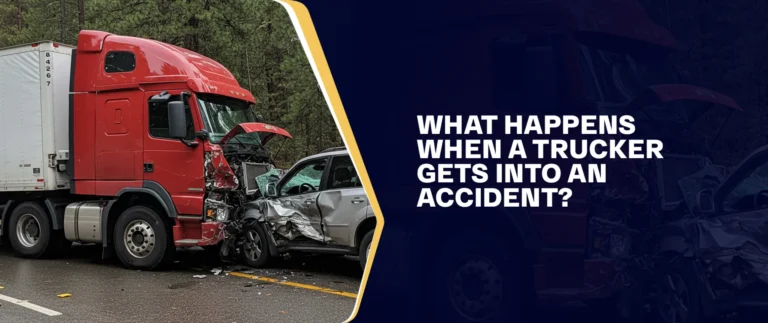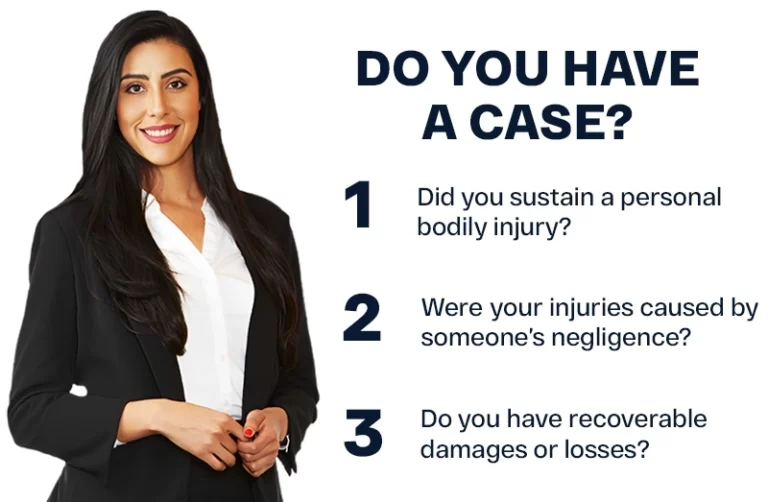Table of Contents
Truck driving is widely considered one of the most dangerous jobs. Operating these large vehicles involves risks that extend beyond traveling on the highway. Aside from the risk of catastrophic accidents, truck drivers face unique challenges that threaten their physical and mental well-being.
Long hours spent behind the wheel, dealing with unpredictable weather and tough road conditions under tight deadlines, and balancing work and family can create significant physical strain. The isolation and demanding nature of the job can also take a toll on a driver’s mental and emotional health.
According to USA Today, there are approximately 1,797,710 truck drivers in the United States. These workers consistently face significant hazards while performing their daily tasks. These workers consistently face significant hazards while performing their daily tasks. In 2021, the industry fatality rate was 45.92 per 100,000 truck drivers, while non-fatal injuries occurred at 259.7 per 100,000 truck drivers. The following sections explore the various factors explaining why this is the case.
Why Is Driving Trucks Dangerous?
Driving a vehicle as massive as a truck comes with several risks. One misstep could lead to a traumatic truck accident, which can cause severe injuries.
According to 2023 data from the National Safety Council (NSC), 5,375 large trucks were involved in fatal crashes, representing a 43% increase in the last 10 years. These accidents resulted in 5,472 fatalities, an 8.4% decrease from 2022 but a 40% increase in the previous decade. Notably, only 18% of the victims were truck occupants.
Various factors can cause fatal truck accidents. Driver errors, such as fatigue, distraction, speeding, or driving under the influence, play a big role. Issues with the truck itself, such as improper maintenance or malfunctioning equipment, can also lead to accidents. Additionally, truck accident lawyers have also seen how external factors like bad weather, road conditions, and improperly secured cargo can contribute to a loss of control.
Apart from the risk of motor vehicle collisions, a truck driver’s lifestyle makes them prone to developing serious work-related diseases, such as obesity, hypertension, and diabetes. Long hours and irregular schedules can disrupt sleep patterns and make it difficult to maintain healthy eating habits. Sitting for extended periods while driving provides little opportunity for physical activity.
The list of dangers that truck drivers face is long. All these factors combined make driving 18-wheelers, Amazon trucks, tow trucks, delivery trucks, tractor-trailers, and other types of trucks a high-risk occupation.
The Dangers Truck Drivers Face
With the convenience of online shopping and two-day shipping, people easily overlook how their orders reach them so easily. When we visit malls, we rarely consider how clothes end up on racks. We also pay little attention to how T-bone steaks get to the meat coolers in supermarkets.
Behind the scenes, commercial vehicle drivers work tirelessly to deliver goods to stores, establishments, and homes nationwide. Despite their important role in logistics, these essential workers face daily dangers due to the very vehicles they rely on.
Unfortunately, truck driving can be a dangerous job. Here’s why:
Trucks’ Design
Because of their inherent dynamics, trucks pose a significant danger to other road users. These towering vehicles can reach a height of 14 feet and weigh anywhere from 10,000 pounds empty to as much as 80,000 pounds when fully loaded. In the unfortunate event of a collision between a truck and a smaller vehicle, the occupants of the latter are at high risk of suffering severe injuries or even death.
Trucks are also known to have a high ground clearance. The space underneath is enough to lodge and trap smaller cars during rear-end collisions, causing underride or override accidents.
Furthermore, trucks are typically much larger than regular passenger cars, especially 18-wheelers. As a result, they have multiple, wide blind spots where other motorists, especially motorcyclists, are often put in danger. When truck drivers fail to notice other vehicles in these areas, they will likely cause wide-turn and sideswipe accidents.
Due to the massive size and design of these vehicles, tractor-trailer accident attorneys often examine collisions involving underride crashes, blind spots, or rollovers to determine how a truck’s structure may have contributed to the incident.
Inexperienced Truck Drivers
Today’s growing concern in the trucking industry is the increasing number of drivers with limited experience operating large vehicles. This trend is largely due to the challenges and shortages this sector faces.
In 2022, truckload carriers with more than 1,000 trucks had a 58.9% turnover rate. This situation is often attributed to factors like pay rates, long hours, and overall working conditions. Additionally, many heavy and tractor-trailer truck drivers take many days off. In 2022, they took an average of 23 days off due to injuries or sickness acquired on the job.
To avoid disrupting their operations, many trucking companies hire inexperienced drivers to handle their deliveries. Unfortunately, these individuals are prone to making driving errors, putting their fellow road users at risk.
Dangerous Roads
Poorly maintained highways and freeways can make trucks even more difficult to maneuver, even when equipped with safety devices, thereby increasing the chance of truck accidents, especially in major cities like Los Angeles. The shipment can fall onto the road when cargo trucks encounter bumps and uneven pavement. If the weight of the load shifts, the vehicle might become unbalanced, making it more prone to rollover accidents. Additionally, sharing narrow spaces with other motorists increases the likelihood of truck collisions.
In these situations, freeway accident attorneys may investigate whether poor road conditions, cargo issues, or driver maneuvering contributed to the crash. They can help clarify how liability might be determined when dangerous freeways play a role in truck accidents.
Long Driving Hours With Limited Rest
The Federal Motor Carrier Safety Administration (FMCSA) has set hours-of-service regulations that truck drivers in California and the rest of the country must follow. According to these rules, they can only drive for a maximum of 11 hours after ten consecutive hours off duty. They must also take a 30-minute break after driving for eight hours straight.
Nevertheless, despite strict implementation, many truck drivers still work for extended periods to beat the clock and meet tight deadlines. Those who are paid on an hourly basis often work long hours to increase their earnings or qualify for incentives. Truckers may face a conflict between prioritizing safety and meeting their financial needs. Many drivers ask themselves, “Should I drive more or take a break?”
Those who don’t follow the rules don’t get enough rest, resulting in fatigued driving. When they don’t overcome their drowsiness while still on the road, they may cause traffic accidents, putting themselves and other motorists at risk.
Lack Of Safety Features
The lack of appropriate technology in trucks has also played a significant role in truck accidents in California. These innovations serve as safety features that help drivers avoid dangerous situations. These devices could warn about potential collisions, alert drivers to blind spots, and help prevent other hazardous circumstances.
Some examples are:
- Driver alert systems
- Electronic stability control
- Forward collision warning and mitigation systems
- Rear-view cameras
Unfortunately, some trucks lack these safety technologies. As a result, truck drivers miss out on features that could help improve road safety.
Lifting And Jumping
Truckers frequently engage in physically demanding tasks that involve repetitive motions, such as jumping out of their vehicles onto hard concrete. They also often lift heavy cargo as they load or unload their trucks. If they perform these tasks without proper precaution, they risk injuring their backs, necks, wrists, elbows, nerves, and muscles.
California law entitles commercial drivers injured on the job to workers’ compensation benefits. This insurance coverage is provided by their employer. After an accident or work-related injury, truck drivers can pursue the following damages through this policy:
- Compensation for medical expenses.
- A portion of lost wages due to missed work.
- Payments in case of permanent disability.
- Supplemental job displacement benefits to help find alternative employment.
- Death benefits for the dependents of a deceased worker.
There are several exceptions to this system. Workers’ comp claims made by truck drivers may be denied if the accident happened off-duty, the driver was impaired, the crash was intentional, the driver outright violated a safety regulation, or the driver failed to report the accident within the allotted time limit or statute of limitations. In these situations, truck accident lawyers can review the circumstances of the injury and explain available legal remedies. They can also assist in appealing denied claims and help truckers understand their rights under the law.
Health Concerns Associated With Truck Driving
A career as a truck driver may seem attractive, given the freedom and adventure the open road offers. However, it also comes with health risks. The long hours spent sitting behind the wheel and the stationary nature of the job can adversely affect the driver’s physical and mental well-being.
Here are some health concerns linked to truck driving:
Physical Health
Truckers usually have a higher bodily injury and fatality rate compared to other private occupations. Physical health problems are also common in this industry, especially with the type of work truckers handle.
Unlike other jobs, driving trucks gives workers few opportunities to engage in physical activity. It’s a sedentary job that requires truckers to sit for long hours with limited chances to stand and move around. Truck drivers typically are only able to stretch during brief breaks before continuing their long-distance journeys. Unfortunately, these extended periods of inactivity make them prone to various health issues.
Roughly seven out of ten truckers are obese, compared to one-third of adult Americans. Additionally, a high percentage of them have or are likely to have diabetes. Thus, they are at risk of developing serious health concerns, such as high blood pressure, high cholesterol, sleep apnea, and heart disease.
Additionally, truck drivers are more likely to smoke compared to other workers. Nicotine is a known stimulant that helps drivers cope with the symptoms of fatigue and maintain alertness when driving. However, smoking increases the risk of truckers developing the following diseases:
- Cancer
- Coronary heart disease
- Peripheral artery disease (damage to blood vessels)
- Asthma
- Stroke
Truck drivers can stay alert in other, healthier ways. They must drink a lot of water, get at least eight hours of sleep every night, and eat smaller meals during the day to prevent low blood sugar levels.
Mental Health
Truck driving can be a stressful job. Drivers spend long hours on the road, often without breaks, requiring them to stay alert constantly. They must also deal with traffic jams, inclement weather, and dangerous roadways while attempting to deliver goods on time. Moreover, they must endure being away from their loved ones for a prolonged period of time.
All these factors can cause mental and emotional strain, leading to the following mental health concerns:
- Fatigue
- Burnout
- Sleep disorders
- Depression
- Socialization issues
Truck drivers with poor mental health may have poor judgment, reduced concentration, and high levels of tension and worry. These factors can significantly increase the risk of road accidents. Sadly, this aspect is often neglected, even though mental health is just as vital as physical well-being for truckers. Through proactive methods and a focus on mental wellness, truck drivers may effectively handle the dangers on the road with increased confidence and resilience.
What Are The Risks Of Unhealthy Truck Drivers?
Truck drivers who neglect their health pose a serious risk to motorists with whom they share the roads. Over the years, fatigued driving has become a persistent concern. Truckers who fall asleep while driving could collide with incoming traffic or external obstacles like trees and signage. Similarly, if they use drugs or drink alcohol to deal with the stress of their jobs, they could compromise their safety and end up in accidents.
Medical professionals have clarified that alcohol and drugs are sedatives that worsen exhaustion and impair cognitive functions. As a result, drunk or drugged drivers often engage in reckless driving and cause collisions. The National Highway Traffic Safety Administration (NHTSA) reported that in 2021, 150 large truck drivers were involved in alcohol-related fatal crashes. In such cases, victims may consider consulting drunk driving accident lawyers to better understand how liability and damages are evaluated under the law.
Impact Of Serious Truck Accidents
Unlike auto accidents, collisions involving large vehicles can result in more severe non-fatal or fatal injuries, such as:
- Head and brain injuries leading to physical, psychological, and cognitive impairments
- Neck and back injuries, like whiplash
- Spinal cord injuries, which can lead to paralysis
- Internal injuries, such as internal bleeding and damage to organs, nerves, and soft tissues
- Amputations
- Burns
- Fractures
- Various infirmities and mobility concerns
- Scars and deformities
- Pain and suffering
- Emotional distress
- Mental health issues like depression, anxiety, insomnia, and PTSD
The very nature of trucks, considering their size and weight and the materials they carry, is one major contributing factor to the significant consequences of truck accidents. Our truck accident lawyers believe that recognizing the skills and professionalism required for truck drivers can help all road users practice safe driving while traveling alongside them.
How To Avoid Truck Accidents
While semi-truck accidents concern all drivers, they can be mitigated with safe driving practices. Unlike other professions, truckers have a bigger responsibility due to the size and power of their vehicles. The key? Taking a moment to think before they act. This simple pause allows them to clear their heads and consider the potential consequences of their decisions.
Here are some other measures to avoid truck accidents:
Avoid Fatigued And Distracted Driving
Fatigued driving usually leads to distracted driving. When they’re tired and lacking sufficient rest, truckers struggle to focus on the road. Traffic accident lawyers often handle cases where fatigue prevents drivers from noticing hazards, such as the dangerous road conditions along the 210 Freeway in Pasadena.
According to the FMCSA, 68 sleeping or fatigued large truck drivers caused accidents in 2020. Given these circumstances, the authorities are considering amending the hours-of-service regulations. This modification aims to provide truckers with options on how they can spend their ten hours off duty.
While waiting for updates on this initiative, truck drivers are continuously advised to prioritize getting enough sleep. They must establish driving limits and take breaks if necessary. Sipping water also helps alleviate drowsiness. In the long run, resting can help them continue driving safely and reduce the risks associated with truck driving.
Avoid Overspeeding
Truckers often choose to drive faster to gain extra miles and meet their tight delivery deadlines. They also try to reach their destinations as early as possible to avoid traffic congestion and adverse weather conditions, like rain, that could disrupt their schedules. This mindset may make it easy for them to convince themselves that slowing down will lead them to more inconvenient situations.
However, driving too fast often leads to speeding-related accidents. On poorly maintained roads, truckers may be unable to react quickly, which puts them and others at risk. If they only drive within the set speed limit, they will have more time to respond appropriately. Most delivery truck accident lawyers consider speeding as a key factor when investigating collisions, as it may contribute to accidents in many cases.
Be Careful When Driving On Unsafe Roads
Experienced drivers should be cautious enough to remember that there are certain locations they should never go to when darkness falls. Naturally, they won’t be aware of where those spots are when they’re traveling unfamiliar roads. However, many experienced drivers prefer spending the night at the shipper or consignee areas whenever possible, as these locations often provide controlled access and better security.
They need to call the lot in charge early, especially if they’re taking a new route. Receivers can advise them whether it’s safe to park and stay there for the night or if they can only use it during the day. They will still have enough time to find a secure resting location if the place is unsafe.
Unsafe or poorly marked construction zones along highways also add to these risks. In crashes linked to such hazards, highway construction accident lawyers can review whether inadequate warnings, poor lighting, or unsafe detours contributed to the accident and help victims understand their legal options.
Perform A Circle Check
Truckers should do a circle check before starting a trip to check their big rig for damage and problems. This simple procedure may help prevent accidents.
Many skip this 20-minute inspection to save time. However, doing this will ultimately help truck drivers avoid serious safety concerns during trips. It can help them spot potential maintenance issues, such as brake failure, before they become serious problems. Smart Trucking’s DOT-certified pre-trip inspection guide can be a useful resource for this.
Use The Buddy System For Repairs
Truck drivers should bring a companion if they need to conduct repairs underneath the trailer. Those without partners, even those with commercial driver’s licenses (CDL), could get pinned beneath their thousand-ton rigs while fixing a mechanical issue.
A buddy can provide assistance when they need it. They can also call for help right away in an emergency.
There are some repairs, though, that they might feel confident doing on their own. Nonetheless, they must be wise when deciding which parts to work on. For example, it’s better to leave brake repairs to a qualified mechanic.
Be Cautious With Trailer Decks And Loads
At some point, truckers may need to climb up the rear of their trucks to do repairs. They may also have to go to their trailers to unload their cargo. However, they shouldn’t do this without the necessary gear or safety equipment, like a ladder. If they recklessly perform this procedure, they might slip and fall and sustain serious injuries.
Open Your Doors One At A Time In Case Your Load Has Shifted
Truck drivers should open the doors of their trailers one at a time to check if cargo has shifted or help prevent cargo from spilling right onto them. Although this is rare, it’s still a dangerous possibility. If the load is not secured properly, it can shift during transit. Even if they’ve double-checked it beforehand, it’s better to be cautious and assume that it could fall on them once they open those doors.
Be Cautious With Other Drivers
Truckers often face significant dangers on the road, with one common hazard coming from other drivers. They must constantly remember that, at times, they might share the road with reckless car drivers who can potentially cause truck accidents.
While safe driving should be a universal practice, some motorists are often careless, which can have serious consequences. Fewer car accidents would occur if everyone were mindful of their surroundings and kept a safe distance from other vehicles to minimize risks. If you or your loved one is an injured victim of a crash involving a reckless car driver, consider consulting our experienced car accident lawyers to explore your legal options.
Do I Need An Injury Lawyer After A Truck Accident?
Generally, seeking legal counsel can be helpful if you want to pursue a legal claim. If you or a loved one sustained injuries in a truck accident, you should consider consulting a truck accident lawyer promptly. You may think that injury claims can be straightforward, but truck accidents involve a complicated process that may require experienced injury attorneys. These accidents and the serious damage they cause are not typical personal injury situations.
First off, multiple parties can be held liable for a truck accident, from the truck drivers themselves to the companies that employ them and handle cargo loading. You need the legal knowledge of truck accident attorneys to establish liability and deal with these corporations and their insurance providers. Skilled truck accident lawyers don’t just seek quick settlements; they can help identify potentially liable parties and look for possible avenues for compensation. Our attorneys can advocate for your right to seek fair compensation.
As discussed, accidents involving trucks, from the relatively modest-sized dump trucks to the enormous Amazon delivery vehicles, often lead to catastrophic injuries and losses. This severity may translate to potentially substantial claims for damages. However, navigating the insurance claims process can be challenging. You may need experienced truck accident lawyers to help you communicate with insurers and pursue compensation for your injuries and losses.
Insurance companies may raise defenses to challenge the extent of their responsibility. They may examine your circumstances closely and offer a settlement based on their observations. They even have attorneys to handle truck accident claims and lawsuits. Having skilled injury lawyers represent you can help build a case that reflects the extent of your losses. Your truck accident lawyer will advocate for your rights and interests, guiding you through these complex disputes and working to pursue fair compensation.
Frequently Asked Questions
What Is The Life Expectancy Of A Truck Driver?
In the U.S., the national average life expectancy was 77.5 years in 2022. For truck drivers, reports suggest that this figure may be lower due to health risks associated with this profession.
What Are The Dangers Of Driving Near Big Trucks?
Sharing the road with large trucks requires extra caution. Their massive size creates blind spots that are dangerous for smaller motorcycles and cars. Furthermore, since they sit higher off the ground, a sudden stop can result in your vehicle getting wedged under the truck. Even when stopped, maintain a safe distance since a truck might roll back into your car, especially when going uphill.
What Are The Danger Areas Around Trucks?
Large trucks have big blind spots, particularly along the sides and directly behind the trailer. These areas are practically invisible to the truck driver, making it risky to linger beside or directly behind their vehicle.
The swing zone, or the area alongside the front of the trailer extending diagonally towards the back, is another dangerous area for other road users. Cutting off a truck making a turn or occupying this space can lead to a collision.
Consult Experienced Truck Accident Lawyers Serving California
Injured in a truck accident? You might be able to seek compensation for your personal injuries. A quick call to Arash Law may be helpful to your case. Whether you sustained injuries while driving a truck or suffered harm as a motorist, our dedicated truck accident lawyers in California can help you pursue legal action.
Establishing liability for any accident, whether in the workplace or not, can be challenging. Many cases involve several parties. In semi-truck collisions, for example, truck drivers might initially be deemed accountable. However, a thorough investigation might reveal other responsible parties. Trucking companies could be considered negligent if they pressure their drivers to speed or fail to maintain the vehicles properly.
Our California injury attorneys can handle these matters. During the truck accident claim process, we will assess your legal grounds and explore your options for seeking compensation. We will also assist you in filing a claim. As advocates for your rights, we’re committed to pursuing fair compensation for your losses. These are just a few things our truck accident lawyers can do for you.
Our personal injury attorneys work on a contingency fee basis. This means you can benefit from our legal services without worrying about the upfront costs. In other words, you won’t pay attorneys’ fees unless we win your case. Our fee structure gives you access to legal counsel without worrying about your current financial standing. Contact us at (888) 488-1391 for a free case review.
Arash Law provides legal services to clients throughout California, including Los Angeles, San Diego, San Jose, San Francisco, Visalia, Stockton, Modesto, Fresno, Sacramento, Long Beach, Oakland, Bakersfield, and Anaheim.














